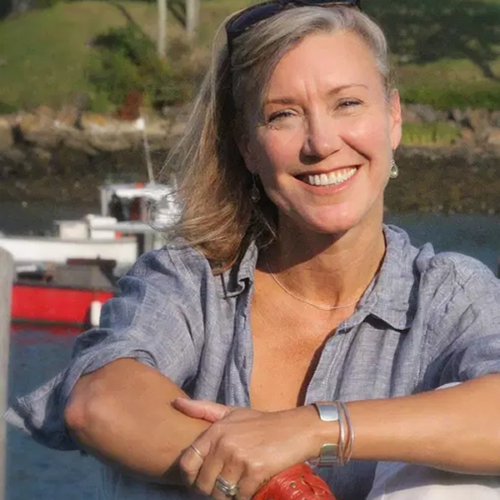“The #MeToo movement helped break down the walls of secrecy and shame that have always existed around the issue of sexual violence,” says psychotherapist Amy Carpenter, author of the bestselling book, Be Strong, Be Wise: The Young Adult’s Guide to Sexual Assault Awareness and Personal Safety. “Since half of all victims are between the ages of 18 and 34, it’s crucial that we carry the movement forward by empowering young men, women and non-binary youth to learn ways of keeping themselves and others safe.”
Carpenter, who has nearly twenty-five years of experience treating sexual assault victims, collaborates with schools and youth organizations to offer a curriculum that teaches young people how to lower their risk of while also building healthy connections with others. Her approach has proven to double awareness scores, meaning participants leave her program with a much clearer sense of how to keep themselves safe.
The drive to make a difference is personal for Amy Carpenter. “As a parent, psychotherapist, and assault survivor, I know all too well the importance of arming our young adults with the knowledge they need to safeguard themselves,” she says.
According to Carpenter, teens are exposed to a staggering amount of explicit content on their computers and smart phones every day – which creates an opportunity for parents and educators. “In my experience, young people are more eager than we think they are to find a safe place where they can process everything,” she says. Because discussing sexual ethics with young people is not easy, Carpenter has identified three primary conversation obstacles and how to overcome them:
1. Be willing to feel uncomfortable. Carpenter teaches that learning to get comfortable with uncomfortable subject matter is the first step to having an effective conversation. “When adults are afraid to talk about something, the fear often causes us to broach the subject from the wrong angle,” she says. “The best way to overcome that fear is to accept that it’s part of the process. If we wait until we’re comfortable, we may never have these important conversations.”
2. Ask better questions. According to Carpenter, asking the right reflective questions helps teens build empathy and awareness when someone they know has been assaulted. “In sorting through the details of harassment or assault, teen groups are often polarized and feel forced to ‘pick a side’ in a bid to maintain their social standing,” Carpenter explains. “To overcome this tendency, instead of asking, ‘What happened and what are people saying about it?’ ask, ‘What would you say or do if someone tried to cross your personal boundaries?’”
3. Get on the same page. “This is a vast subject, and many people struggle with knowing where to begin,” Carpenter says. “Exploring the sexual assault definition (which many young people don’t know) is a great place to start a dialogue.”
Carpenter’s book comes highly recommended for parents and educators who need extra help with those difficult conversations with young people.
“Be Strong, Be Wise is an invaluable resource to help young women and men navigate the complexities of social and sexual situations in order to prevent and protect themselves,” says Dr. Nina Silberman, psychologist and parent. “Amy’s book is written in clear, straightforward language that interweaves real life vignettes, statistical data, concrete strategies, thought-provoking questions, practical guidance, and vital resources that make this book a must-read.”
While awareness of sexual harassment is at an all-time high, there is still a lot of work to be done. About 60% of women polled by Time magazine said that their work environment has not changed since the #MeToo movement, and half of them said that they are no more likely to report sexual harassment now than before. Yet Carpenter is encouraged by the open, honest conversations she has had with young people in classes she has taught. “In many ways, young people are able to hold meaningful conversation on topics adults still struggle with, since they’ve grown up in the digital age. I can see this trend continuing and it gives me hope,” she says. “Young people are advocating for themselves in profoundly personal ways; it’s our job to respond as fully and mindfully as we can.”
Amy Carpenter is a psychotherapist, life coach, and bestselling author with more than twenty-five years of experience in child welfare, youth advocacy, and sexual safety education. She is the bestselling author of Be Strong, Be Wise: The Young Adult’s Guide to Sexual Assault Awareness and Personal Safety and creator of the Be Strong, Be Wise sexual safety education program. Her writings and educational curricula are utilized by schools, youth organizations, and families to empower young people with tools that build confidence and support healthy relationships. She is a speaker, group leader, and co-founder of several community organizations designed to meet the needs of children and families. In 2018, Carpenter was named the Maine Writers and Publisher’s Alliance Ilgenfritz Scholar for writers of non-fiction.
To learn more about books, programs, and other educational resources available from Amy Carpenter, visit bestrongbewise.com.

